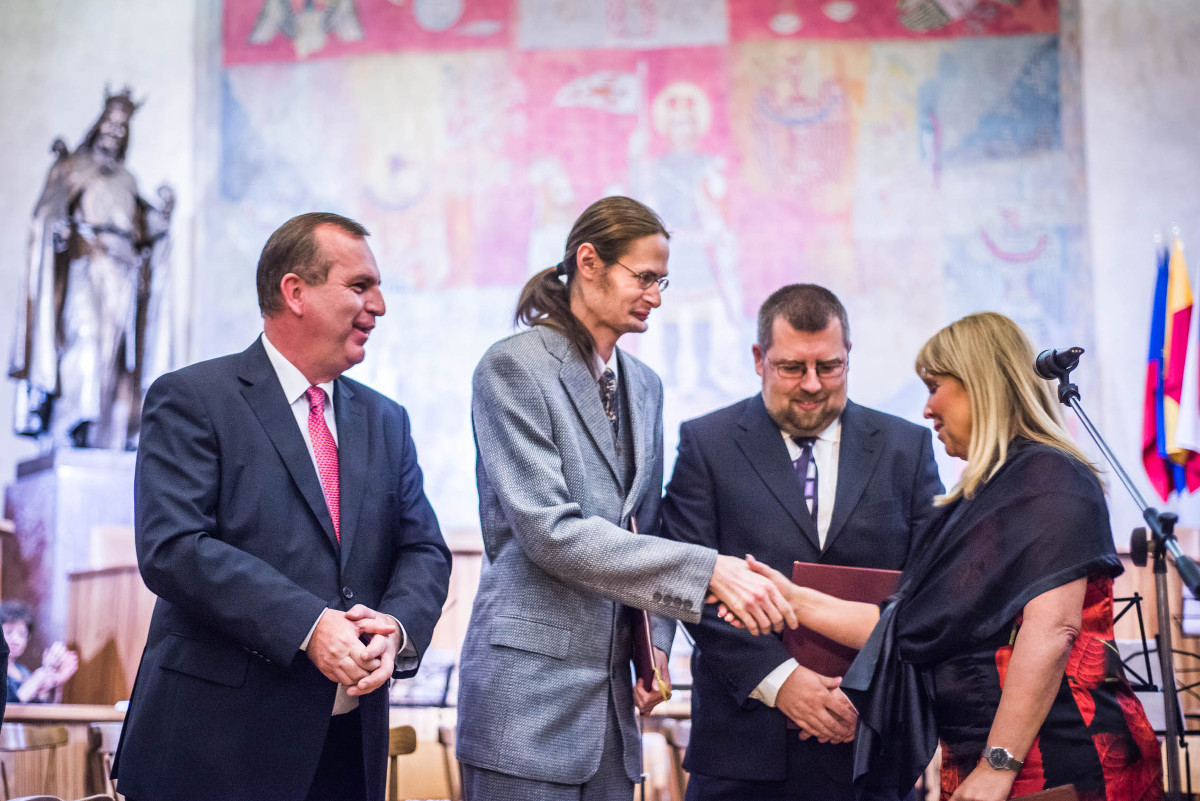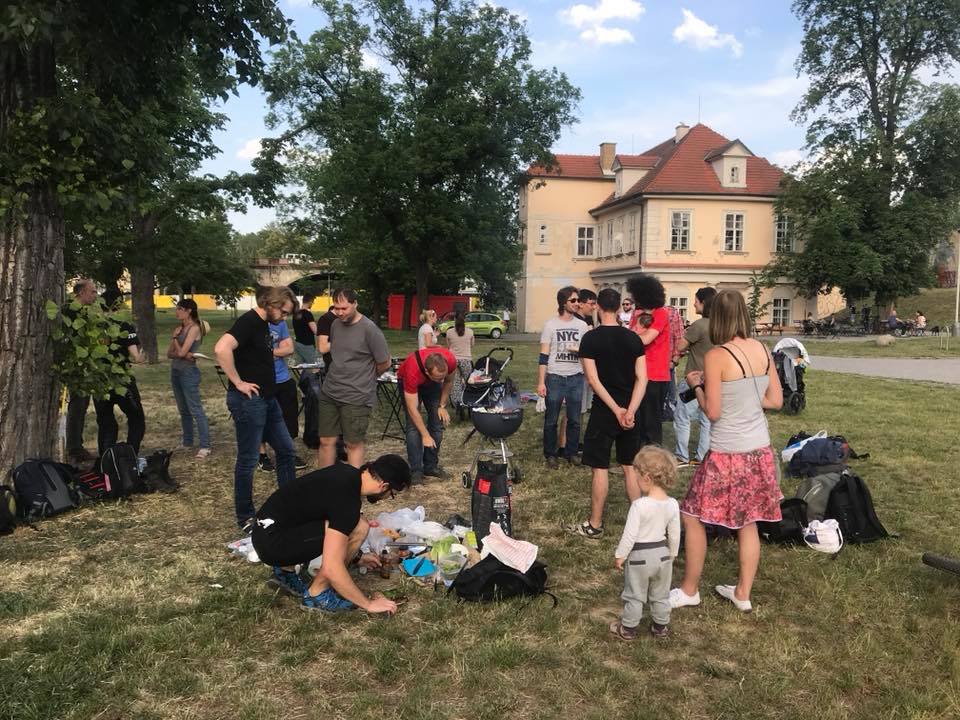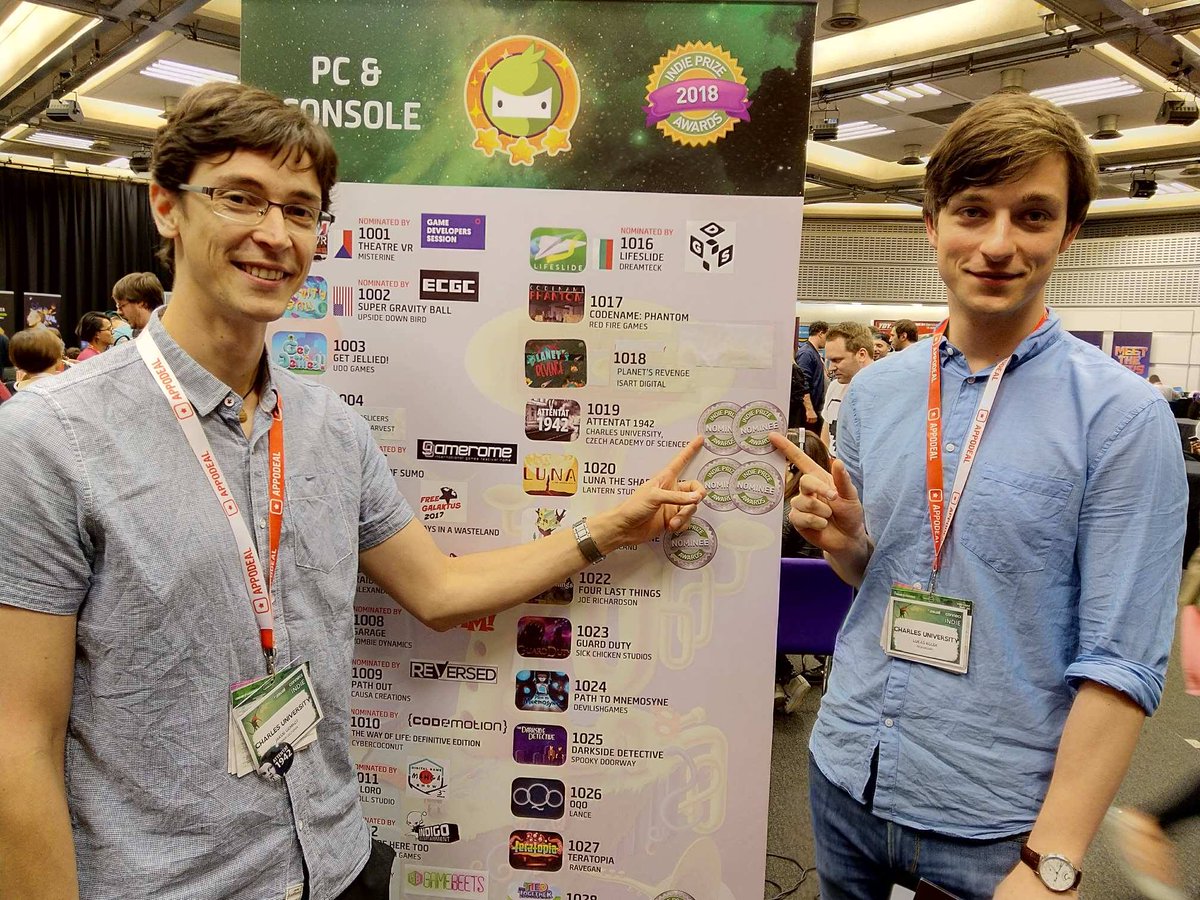
Cyril Brom, currently an associate professor at KSVI, in collaboration with colleagues from the Faculty of Arts of Charles University and the Institutes of Psychology and Physiology of the Czech Academy of Sciences has developed his own research direction with his students, focused on psychological-pedagogical experiments. His group investigates the educational effect of various computer-based educational material, especially the question of whether educational outcomes are correlated with positive affect arising from the educational experience. New technologies include e.g. the analysis of cortisol levels as a psycho-physiological correlate of negative affect, and following eye movements to determine whether some aspects of educational material can be distracting to students. This is not only ground-breaking research for the Czech Republic, but has also earned international acclaim, as demonstrated by regularly published results in recognized journals with a high impact factor (Computers & Education, Computers in Human Behavior). What is more, according to available data, no Czech author had published in these journals before Brom. The research has contemporary and wholly practical uses, as shown by the results of implementation projects. Applications developed in this research program (Europe 2045, StoryFactory) are used in high schools in the Czech Republic, and the most successful (Czechoslovakia 38-89) has achieved exceptional international success, as demonstrated by a series of awards at conferences and competitions in Europe and the USA.
This research group, including our young colleague Tereza Hannemann and a series of doctoral students, was joined in mid-2018 by Ján Antolík, a graduate of the Math-Physics Faculty, who brings his extensive international experience to the team.

The Computer Graphics Group belonging to KSVI can rightfully be considered as one of the world-leading research teams in the area of computer graphics focused on the synthesis of realistic images. The group's work in recent years has had a significant influence on the development of this field and many of its results are in use by prestigious firms (Weta Digital, Pixar Animation Studios, Chaos Group). The group's founder Josef Pelikán has been building up the field of computer graphics at the faculty since the 1990s. His passion for the discipline and lively presentations are almost legendary, and he is complemented by three outstanding scientific figures. Jaroslav Křivánek focuses primarily on simulating the transport of radiation (including light), Monte Carlo methods and visual perception. Before joining the Math-Physics Faculty he was a researcher at Cornell University and an assistant professor at Czech Technical University in Prague. In 2014 in recognition of ”advancing computer graphics to a new level" he was selected for New Europe 100, a "list of challengers from central and eastern Europe contributing to innovation at a world level". Alexander Wilkie focuses on the physical aspects of light transport, modeling the appearance of materials and color theory. Before joining the Math-Physics Faculty he worked as an assistant professor at the Technical University of Vienna, where he also earned the title of Ph.D. and a habilitation. Elena Šikudová, who joined KSVI in 2017, expanded the group's research and teaching capabilities on topics related to computer vision.

Cyril Brom may be considered to be the founder of teaching and research at our faculty in the area of computer game development. At his initiative, the new study branch Computer Graphics and Game Development was created several years ago in the Master of Computer Science program, in collaboration with the computer graphics group at KSVI. As part of the reform of the degree plans of the Bachelor of Computer Science program, which occurred while preparing for institutional accreditation, computer games were included in the new specialization Computer Graphics, Vision and Games in the new Bachelor of Computer Science program, and also into the modernized doctoral study branch Computer Science – Visual Computation and Computer Games. Cyril Brom also has significant accomplishments in teaching and research in this area. He is the author or co-author of 115 reviewed publications, a considerable number of which are related to artificial intelligence in computer games, and in the past two years four of his doctoral students have successfully defended their dissertations in this area. However in 2017 he decided to focus his future efforts in a more educational direction. The instruction of key subjects and the leadership of game-related projects and research have been taken on by his student Jakub Gemrot, the leader of the successful project teams for Pogamut and Czechoslovakia 38-89.
We are the Computational Systems Neuroscience Group (CSNG) based at the Faculty of Mathematics and Physics of Charles University, Prague. The main goal of our group is to identify computations implemented in the neural system that underlie our sensory perception, as well as applying this knowledge to the design of stimulation protocols for visual prosthetic systems. To that end, we build models of visual system at various levels of abstraction using variety of computational techniques including, but not limited to, machine learning and large-scale biologically plausible spiking neural network simulations. To help us with this endevour, we also develop Mozaik, an open-source framework for rapid prototyping of large-scale neural simulations of sensory system, and automation of the virtual experimental workflow. We collaborate closely with the experimental group of Yves Frégnac, the theoretical group of Alain Destexhe and the neuroinformatics group of Andrew Davison at NeuroPSI, CNRS, France as well as the experimental group of Diego Contreras at the University of Pennsylvania.